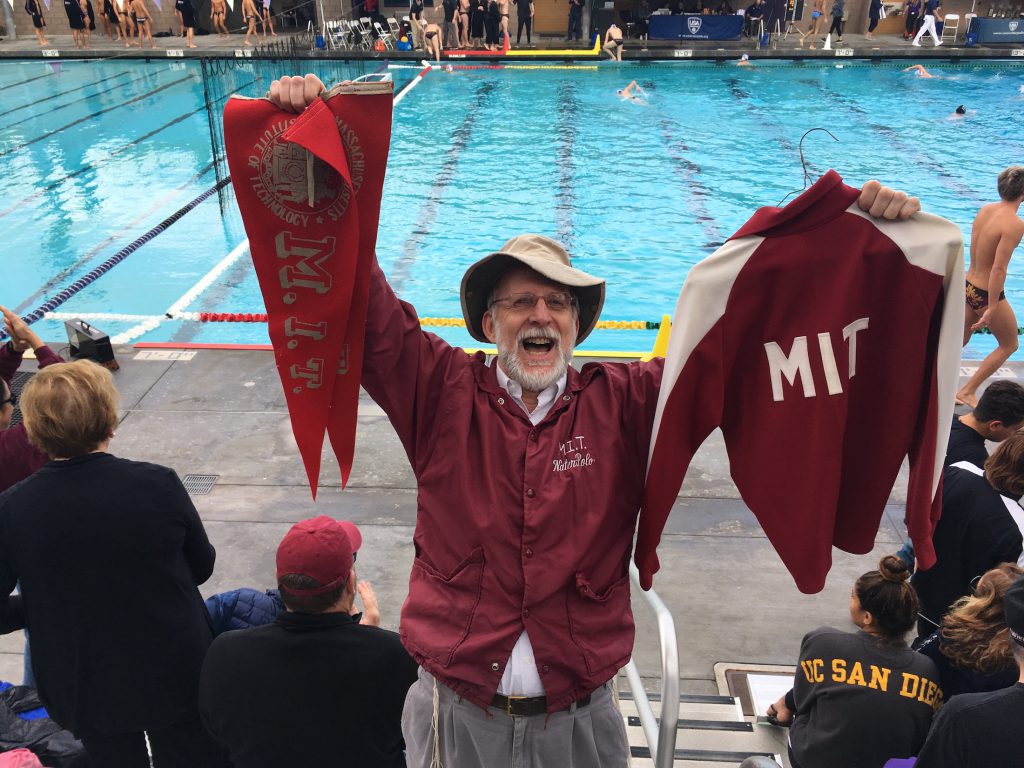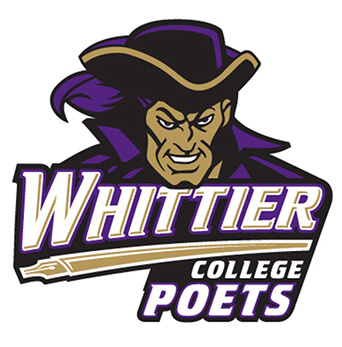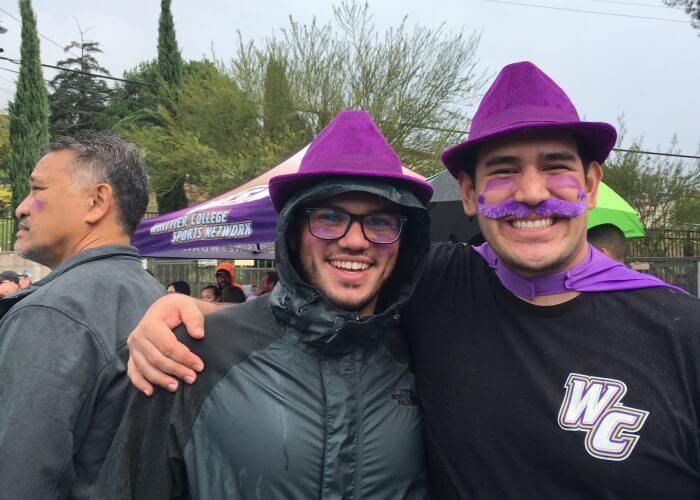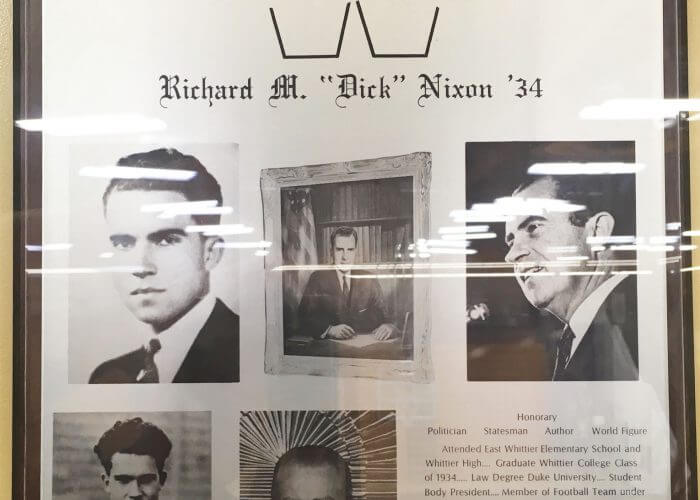Whittier, Oh! Whittier Say Have You Seen Whittier?

BROOKLYN, NY. That the first-ever DIII men’s national was an unqualified success was abundantly clear to this observer. No, the match-ups at the DIII Collegiate Men’s Water Polo National Championship weren’t as compelling as the action at the 2019 NCAA men’s tournament; not many games can top the scintillating Stanford vs. USC semifinal that was truly the national championship match.
[Stanford Beats USC in Sudden Death in NCAA Semifinal]

What made for a fantastic weekend of polo action was that a truly national DIII tournament occurred, and that it took place at Whittier College.
The four teams that competed last weekend to the Lillian Slade Aquatic Center —Eastern programs Johns Hopkins and MIT, Claremont-Mudd-Scripps and the host Poets — represent the cream of a growing crop of DIII programs from across the country. That Hopkins and MIT traveled West was testament to their schools’ belief in the format. Not only did they have to contend with a cross-country trip, academics was a consideration. MIT begins finals the following week, and Hopkins was also contending with the conclusion of their semester.
The Western teams, both members of the Southern California Intercollegiate Athletic Conference (SCIAC). were clearly the tournament’s best. Not only did the Stags and the Poets have deeper rosters, their superiority was borne out by the results in the pool. Host Whittier won their opening match over the Engineers by 12-8, while CMS topped Johns Hopkins 14-11.
The ensuring first-ever DIII final was a defensive slog, with the most important stat being saves by the goalies (15 for Whittier’s Murat Ersoz and 13 for Noah Smith of CMS) and the primary accomplishment being how many field blocks the Poets threw up.

The Poet rules in Whitter! Photo Courtesy: M. Randazzo
The tournament represents a long-term goal. Not only does it offer an ideal culmination to the DIII season — as opposed to the almost entirely DI tournament the NCAA organizes —but it will likely kick-start growth among prospective institutions.
According to Dan Sharadin, commissioner of the Collegiate Water Polo Association who has been focused on this idea for decades, the collaboration necessary for finally realizing this tournament was a credit to Jen Dubow, commissioner of the SCIAC, and John Abdou, Chief High Performance Officer for USA Water Polo. Sharadin credited Dubow and her conference with a substantial debt, as they relinquished their automatic qualifier for the 2019 NCAA tournament.
That’s perhaps more than Johns Hopkins and MIT, of the Mid-Atlantic Water Polo Conference (MAWPC) and the Northeast Water Polo Conference (NWPC) were prepared to do — at least on the record. It was subsequently revealed that without a waiver from the NCAA, any of the conference winners who forfeited their automatic qualifiers would endanger that AQ going forward.
That the Blue Jays and Engineers were not in contention for their respective conference titles was perhaps why MIT’s Austin Ringheim and Hopkins’ Max Schlegel were non-committal about whether they would turn down an AQ if they somehow won one.
[SW Polo Roundtable With Jen Dubow, John Abdou & Dan Sharadin On Biggest Issues Facing The Sport]
Therefore, the sacrifice by Dubow’s conference turned out to be a pivot point for the nascent idea. Without the SCIAC — historically home to the nation’s best DIII polo programs — there would be no “national” in this tournament.
But Whittier itself was a key element for the event’s success. The small liberal arts college of approximately 1,700 students — whose most notable alum is Richard M. Nixon, the only American president to have resigned from office — provided a perfect backdrop for a tournament featuring the country’s top DIII polo programs. A part of the SCIAC’s collection of excellent academic schools that also are fiercely competitive in polo, the Whittier athletic department was USA Water Polo’s perfect partner to produce a top-flight tournament.

Could he have hacked polo? Photo Courtesy: M. Randazzo
This is not as obvious as it might seem. Many DIII schools might play polo but not see it as integral to the school’s identity. Not the Poets. They went to NCAAs in 2014 when Justin Pudwill was their coach, and —following his departure in 2017 — have not missed a beat under Head Coach David Kasa. In less than two years the long-time community college coach has taken Whitter to the forefront of DIII polo, leapfrogging CMS, which has been a perennial power for Head Coach Greg Lonzo’s 13 years in Claremont, and Pomona-Pitzer, which had won three-straight men’s titles under the leadership of Alex Rodriguez.
[On The Record With Whittier’s David Kasa, Head Coach of the DIII Men’s Polo National Champs]
In the SCIAC regular season, the Sage Hens were decisively beaten twice by the Poets; they also lost twice to the Stags, including a one goal defeat in the SCIAC semifinals, one which eliminated Pomona-Pitzer from the new DIII tournament.
Which turned out to be a blessing in disguise for this event. There’s no doubt that the Sage Hens, if they had maintained their level of dominance in the conference, would have hosted a fantastic tournament. The combined CMS / Pomona-Pitzer campus annually puts on the Gary Troyer Memorial Tournament, an impressive mix of DI, DII and DIII programs. But this tournament exhibited the best that Whitter Athletics had to offer, and the Poets passionate fans —as well as assorted colorful characters for the other participants — made for a truly memorable launch of what annually should be a vibrant conclusion to the DIII season.
One can only hope that President Nixon, where ever he is in the hereafter, is grinning for his Poets.



